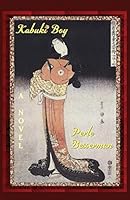Description
Perle Besserman's Kabuki Boy is a novel of Japan set in and around the capital city of Edo (modern-day Tokyo) during the waning decades of the Tokugawa Era (1600-1868). Broadening the often narrowly focused literary and cinematic portrayals of samurai resistance to their declining social status, Besserman's vivid narrative conveys that tumultuous period through the eyes of its peasants, priests, politicians, revolutionaries, mountebanks, geisha, and actors using the Kabuki theatre as a backdrop. Its nineteenth-century framework nested in a post-modern narrative by its fictional twentieth-century "editor," a cultural historian and abbot of a Zen monastery one hundred miles from Tokyo, the book is comprised of memoirs, theatrical and monastery records, personal letters and journals, all centering on the life of a Kabuki boy actor whose brief but illustrious career reflects not only the "golden age of Kabuki Theatre," but the most dramatic spiritual, political, and artistic events characterizing Japan's violent emergence into the modern world.



 Amazon UK
Amazon UK